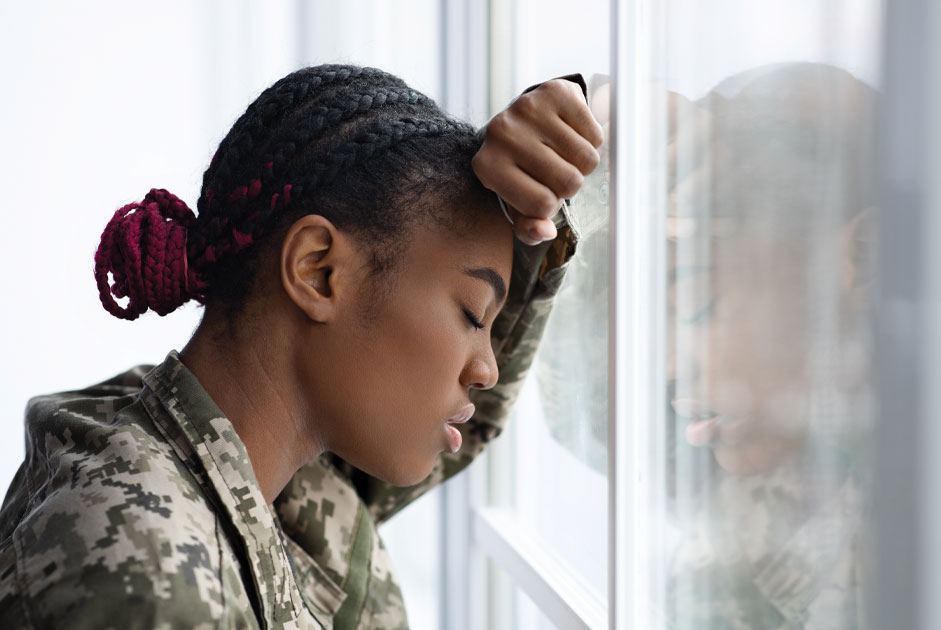The decision to enter the armed forces for our country is one that is not made in haste or without understanding of the responsibilities and the consequences that could lie ahead. It is without a doubt, one of the greatest ways to support our country, yet when a veteran leaves active duty, they often feel disconnected and alone, because they do not fit into the new ‘normal’ they live in daily. Unfortunately, many fall through the cracks and rarely seek help for struggles leading to not only isolation, but depression and in some cases, suicide. Knowing how to meet veterans where they are and offer them the help they need to address their loneliness and other battles is a focus of mental health agencies today.
A Bigger Battle at Home
The statistics are staggering when you read that as many as twenty veterans per day commit suicide. While mental health professionals have focused on depression, loneliness has long been ignored as a factor possibly leading to debilitating mental health issues. A recent study by Yale University found that loneliness was a top predictor of depression and the development of suicidal thoughts, along with physical disability.
Understanding loneliness and the effects on not only mental health, but physical health as well, has long been studied. There is a clear connection between loneliness and the risk of high blood pressure, mental decline, depression, and early death. As humans, we want to belong and be part of something bigger than ourselves. Veterans have that sense of belonging when serving, but when their service comes to an end, the isolation often begins and they fall into a deep hole of how to connect outside of their military roles.
Military Versus Civilian Life
Disconnection
Loneliness has been described as ‘the discrepancy between the social relationships we have and the social relationships we wish to have.’ Think of times when you have been in a crowd, yet felt lonely. It’s no surprise that it can take time for a veteran to readjust to the civilian world. Military men and women, when in service, have a strict and regimented schedule, and serve in a group or unit who have the same purpose. But veterans, once in civilian life, report disconnection to their family, friends, and activities, a lack of structure and purpose, and little support from institutions.
When in the military, especially during deployment, a service person is placed in an environment where they are ‘issued’ colleagues, friends, as well as a social life with those whom you serve with, bonding through shared experiences. With the discipline in military life, things make sense, you have a hierarchy with rank and rules to help with understanding your place in the system. A lack of structure can lead to isolation and loneliness for veterans.
Relationships
For the relationships that veterans return home to, many of those do not survive reunification. Statistics show that enlisted first line military supervisors have the highest divorce rate of any profession for those under 30, with 30 percent of couples divorcing. Mental health professionals believe this may be due to service members having to become adjusted to a different structure of life and that may not be compatible with old relationships. As the divide between the veteran and their family and friends grows, so does loneliness.
Fighting the Enemy of Loneliness
Assimilation back into society for the veteran is not a light switch that can be flipped to ‘get back to normal.’ For the veteran, it is suggested that you be patient with yourself and be open to the possibilities that are out there for you. Start doing activities that make you feel more whole and help you integrate into the civilian world. Try activities that honor your service, like volunteering for veterans’ causes where your experience and knowledge is valued.
No matter what you are dealing with, connecting with people who share your struggles is always a positive. Research online groups that help veterans get involved in civilian life through addressing the challenges of depression, loneliness, or physical disabilities.
More than anything, again, take your time and be proud of your service and know that you are appreciated and supported in finding your own ‘new normal,’ so reach out and let others help you and thank you for all you’ve done and accomplished.






















